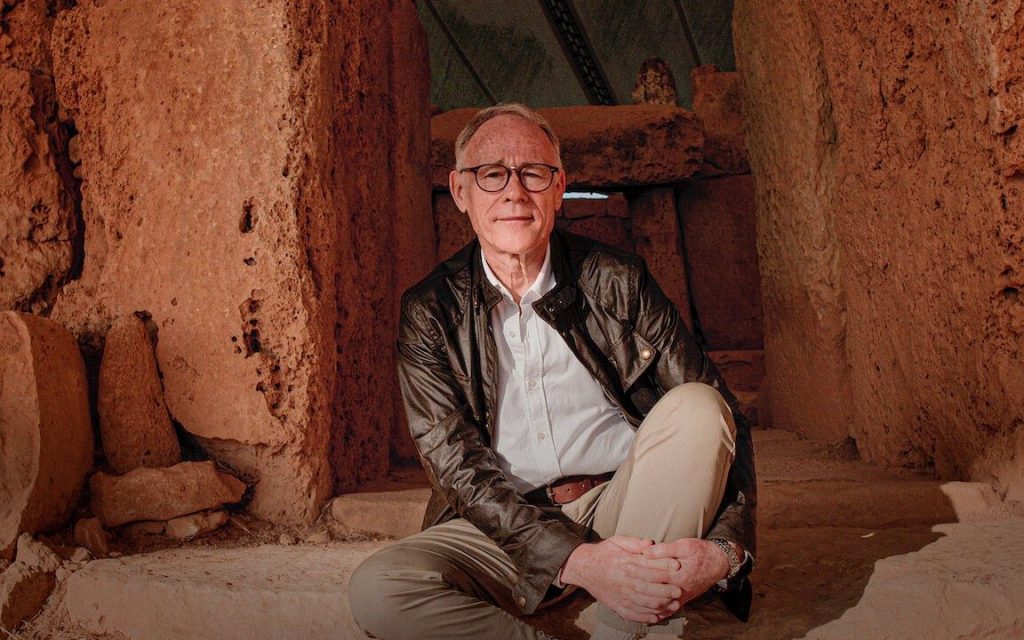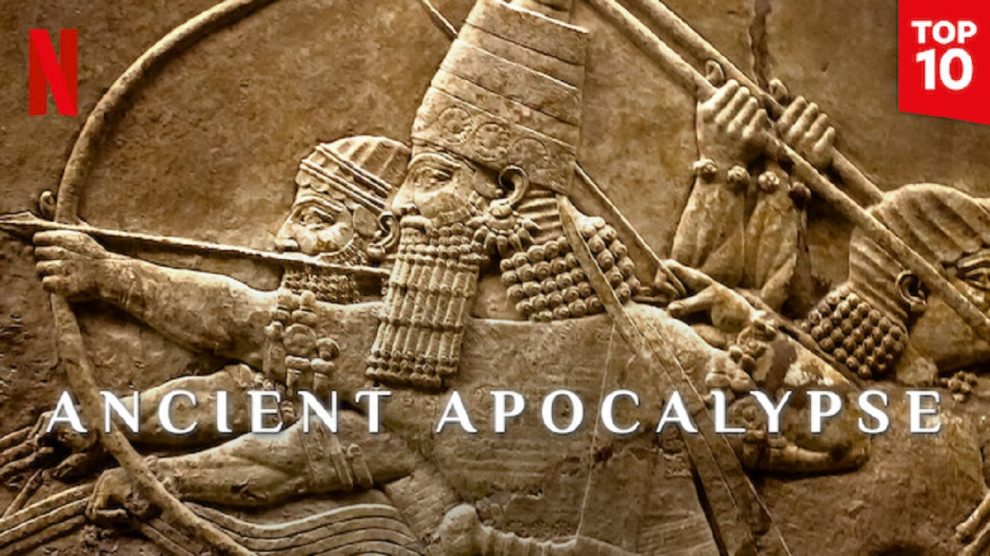ANCIENT APOCALYPSE on Netflix is a rip-roaring comedy. It parodies pseudo-archaeology, conspiracy theories, and the unremitting self-regard of its central character.
Best of all, it does so unintentionally.
Ancient Apocalypse is a prime example of how to make its subject matter laughable and offensive simultaneously. It’s a bit like Ricky Gervais hosting the Golden Globes. There are loads of laughs along the way, but you know he will say something wildly inappropriate sooner or later.
Graham Hancock, a journalist, presents it. He never shies away from talking about the chip on his shoulder at the lack of regard his ideas have among people armed with evidence and knowledge instead of assertion and guesswork. His evident fury at the academics who don’t take what he says at face value or gospel truth brings to mind Mr Pooter.
A specific term for that approach is called the “argument from ignorance”. It’s best expressed as stating that just because X doesn’t explain everything doesn’t mean Y is a valid alternative.
But let’s get to the good points.

Graham Hancock communicates clearly and engagingly. The series is slick, and his presentation skills are compelling. It’s handsomely shot, occasionally looking like a coffee table book of high-quality photography. The CGI is good and used sensibly to illustrate Graham Hancock’s points. The smooth confidence of his delivery demonstrates undoubted skill and an ability to marshal information to support his theories.
None of those good points overcomes Ancient Apocalypse’s basic flaw: it is bunk. Worse, it’s built on a foundation of bunk constructed from the ruins of even older bunk.
The programme’s basic premise rehashes one of Hancock’s previous books and its accompanying TV documentary. We can summarise the essential elements easily: a comet crashed into the earth in 12,800 BCE and ended an advanced civilisation. The survivors spread across the globe, sharing their knowledge with our primitive forebears.
Hancock cites discredited “sources”, cherry-picks from bona fide academic works, and deploys both to support his fixed point of view. There’s even some real science in there to gloss over the dross.
Examples of the sort of hogwash he relies upon are Immanuel Velikovsky and Erich von Däniken. Two crackpots – and in the latter case, a proven fraud – whose idea of rigour was to draw massive conclusions from zero evidence. Or, in von Däniken’s case, make up the evidence.
Ancient Apocalypse is history as a conspiracy. They – whoever they are – have worked since time immemorial to erase the truth about the past by … er… studying it and … er … excavating it and … er … writing about it and presenting it for public examination.
As secret conspiracies go, it’s a very unsecret one.
The problem is the inherent racism behind some of Hancock’s claims. There’s no reason to suppose Graham Hancock is a racist, nor any suggestion he is, but some of the people he speaks with during the programme certainly dance around the fringes of white supremacy. The barely hidden subtext is that all those non-white civilisations must’ve had help from mysterious outsiders.
Many of Hancock’s arguments originate in the overtly racist pseudo-scientific works of the 19th and 20th centuries. He glosses over the problems with his source materials, which is just as well given their take on humanity’s history and ancient (non-white) human achievements.
Graham Hancock has considerable gifts as a presenter, so much so that you are almost gulled into taking what he says at face value. However, no episode is complete without him complaining about the mysterious “they”, the mainstream academics who mock his work. When he does so, he misrepresents the basic principles underpinning research by those who know what they’re talking about in architecture, science, philology, archaeology, and history.
He is a journalist who tells an interesting story well. But it’s only a story, his belief in it is total, and he lacks proper sceptical distance from the material. Journalists like narratives, but history is not a linear narrative beginning “Once upon a time” and cannot be treated as one. You may as well try nailing jelly to a wall.
Ancient Apocalypse would be great television if they’d tuned out the chip on his shoulder and concentrated on simply presenting the enchanting fantasy he weaves. As it stands, it comes across as little more than a score-settling vanity project.
And bunk.

















